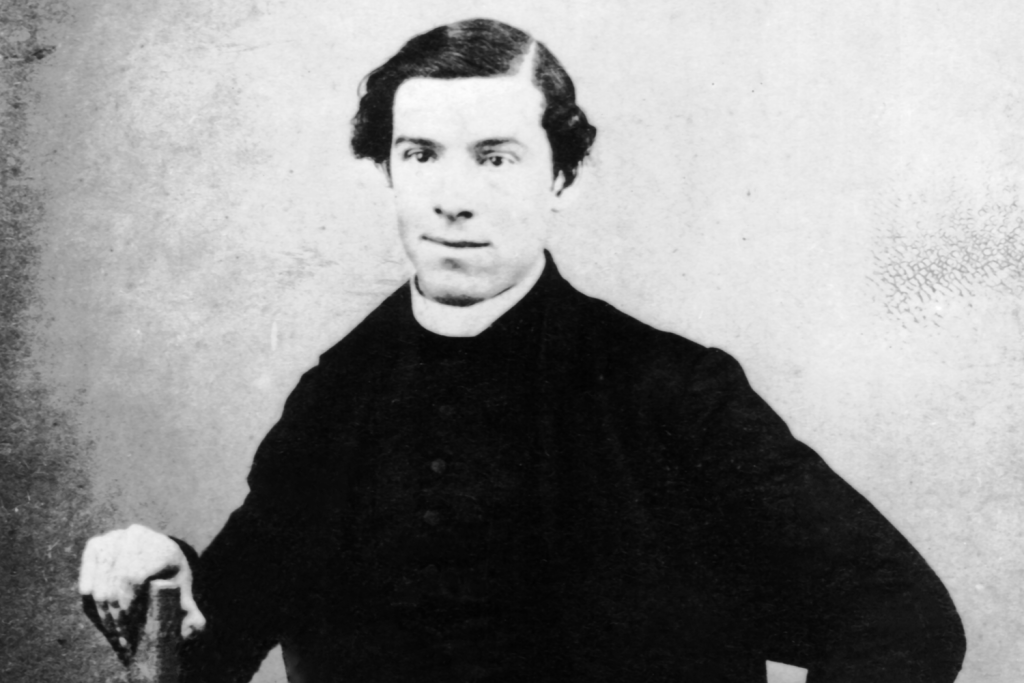October 5, 2023

Each year as the anniversary of the death of Julian Tenison Woods approaches (7 October), time can profitably be spent reflecting on various aspects of his life and spirituality, particularly in regard to how this can be relevant today.
In the lead up to the coming referendum in Australia, some of Julian’s writing on Aboriginal Australians seems particularly relevant. Below are some excerpts from his writing, presented with an invitation to spend time relating his thoughts to the upcoming referendum question.
Regarding lack of Government Funds for the Mission Station at Coranderk in Victoria:
What a shame it is. The colony is reckless in its expenditure on far less urgent objects. And yet it is such a common thing to find politicians shaking their head and saying so wisely that it seems destined for the black races to fade away before the white. Fade away, indeed. You stop a white man’s wages and give him nothing to eat and see if he won’t fade away.
The Australasian, 2.11.1867, p. 8
From a lecture in West Maitland on the Early Colonists of New South Wales:
It was rather strange that the Government of England, which had sent the convicts to New South Wales for having too great a liking for the property of others, should have set these convicts the example of taking the land of the blacks without leave asked.
Maitland Mercury and Hunter River General Advertiser, 10.8.1878, p. 14
On coming across children who had been ‘found’ by settlers after a raid in the bush. He believed their parents had been killed. Their white owners complained of their sulkiness:
It is hardly fair to call this sulking. Let any white child be stolen from its parents and its conduct would be the same. I should say also that it was a consequence of grief and terror combined. It is no small misfortune to a little child, black or white, to be suddenly torn from its home and from all that it loves, by those who may be ghosts or wild beasts for all it knows.
Sydney Mail, 17.7.1880, p. 102
Some will say that we ought not to have come to a country which was not ours and molest the peaceful inhabitants and rightful owners. This, however, is such a large question that I cannot profess to deal with it, but for the sake of consistency it would come better from those who had stopped away on that ground, and not from those who are here.Sydney Mail, 17.7.1880, p. 102
Some adequate provision should be made for the natives, that is to say, which would put them out of reach of hunger. It is objected that the expense of this would be too great, but we are bound by every interest of justice and humanity to make even great sacrifices for the purpose. We have no right to leave these people to starvation and death, when we have taken their country. If ten times the amount be spent upon the blacks which they now cost us, it would be no more than simple justice.
The Sydney Morning Herald, 30.10.1880, p. 7
It is the misfortune of the British colonist to be always unsuccessful in dealing with the aboriginal population. Wherever the English have gone, the native races have disappeared. It is hard to have to read these things of ourselves, but harder things will yet be said of us. What has been written will at least serve to show hereafter that the responsibility was felt by some.
The Sydney Morning Herald, 30.10.1880, p. 7
Reflection starters:
- What do you make of Julian’s observations on the lives of the Aboriginal people he saw around him?
- Has anything much changed for Australia’s First Peoples since Julian’s time?
- What can we do now?
Laraine Crowe rsj
Print or share this page :
print

